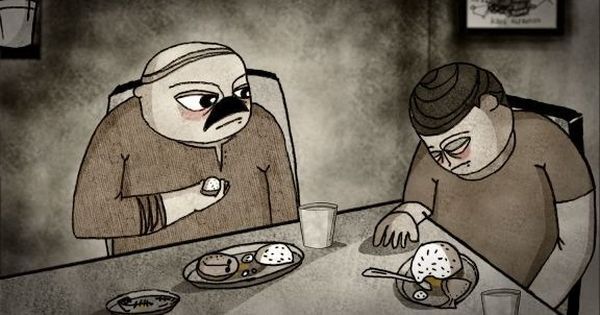The annual celebration of Kali Pujo is a grand affair at home. Celebrated during the month of Diwali, it is a whole week of food, fun and occasional outbursts of familial grievances. The pandemic toned down the scale last year but was ultimately defeated by the larger-than-life attitude of the elders; our house was lit up, our premises purified with Gangajal and the corners were replete with sounds of the conch and dhaak for four days straight.
A little over a week later, there was dead silence and a darkness that only the brightest of lights can leave behind. Our deepest fear came true: more than half my family, and almost all over the age of 40 and with various comorbidities, had contracted COVID-19.
I was among the last in the family to get the virus. After two weeks of worrying about others, as I lay in bed at three am watching people eat on the internet, I realised I had lost my sense of smell. And with it, my appetite.
This loss is so unfamiliar that one even misses the stench of piss that a random drunkard leaves behind near your doorstep after a careless night. It is soul-crushing and that is exactly when I turned to those small gestures of care that lulled me to sleep at the end of an anxiety-filled day; gestures that are small enough to go unnoticed when seen from close quarters but loom large from a distance of six meters.
The pandemic has robbed us of the comfort of our most intimate ways of expressing affection. A casual brush of fingers or a spontaneous hug that just spills over make us now run to the wash basin. We often fail to recognise our oldest neighbours while hankering over the desired piece of the fish at the market; in case we do, it is difficult to gauge if our smiles reach the eyes from behind the masks. Even laughter – which is said to be the best therapy – is out of question as the droplets hang heavy on the lighter moments.
Also read: Me, Ma and Macher Jhol: My Fishy Adventures With Bengali Food
‘Maacher Jhol’
Maacher Jhol, a short-animated movie (The Fish Curry, 2017) by Abhishek Verma tells the story of a young man who comes out to his father while making him his favourite fish curry. The words come out almost silently, unaccompanied by any grand gestures of acceptance or abandonment; natural like a breath but tensed like you might lose oxygen within a matter of seconds.
The director deals with this potentially heavy topic in a light-hearted manner that soothed my hurt mind and I found myself wandering through the tender moments of life: the moment when a friend lent a hand to an old woman stuck at the door of a bus, the moment when my father slept silently beside me when I failed to get into my dream university, moment when my mother kissed my forehead at the wee hours of morning after a tiring fight and countless other such memories. All these moments were ignored in order to look at the bigger picture.
As my mother and I were healing, my then recently-recovered father and sister took on the role of caregivers. The days were spent isolating, measuring our oxygen saturation levels and oscillating between despair and hope. The hours went by almost normally for me as I sat in front of my laptop, working, but what hit the most were the meal times: previously a shared moment, when we caught up on our days, gossiped almost like teenagers, shared jokes and laughter and argued as well, was now a silent passing of food from a distance, from one table to another.
Food, the principal metaphor in the short movie, was also the thread that kept us afloat in those gloomy days. It came from our driver dada’s home and tasted just like my mother’s food: the right amount of oil, sugar and spices and the right kind of dishes over the course of 14 days kept things akin to normal. Maa and I took in the aroma before each meal to smell and slowly realised it was the same as before, maybe even better, now that we were regaining our olfactory senses. Coupled with baba’s lame jokes, didi’s relentless reminders to keep working on the research proposal, a friend’s unannounced surprise on the last day of recovery which also happened to be my birthday or usually reticent neighbours asking after our health with well-wishing smiles in their eyes – all affirmed that there is love hidden in places that we tend to overlook.
I wish for a lot of things to go back to how they were before the pandemic, but it would be heartbreaking to get back to grand gestures when such simplicity exists.
Shreya Bhowmik is a Masters graduate of English Literature and Political Science from Presidency University and Delhi University, respectively. She spends half the day reading fan-fiction and the remaining half on working towards her research interest that broadly falls under film and queer studies. She loves old buildings, hole-in-the-wall eateries and unfinished conversations, prefers Calcutta over Kolkata and hopes to meet Dylan and Wong Kar-wai someday before the dust calls. You can find her on Instagram @shreya_bhowmik.

